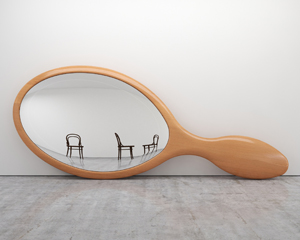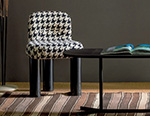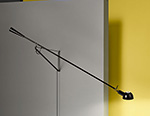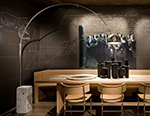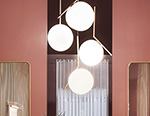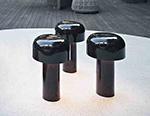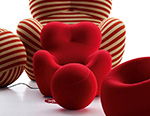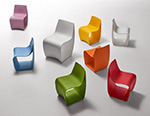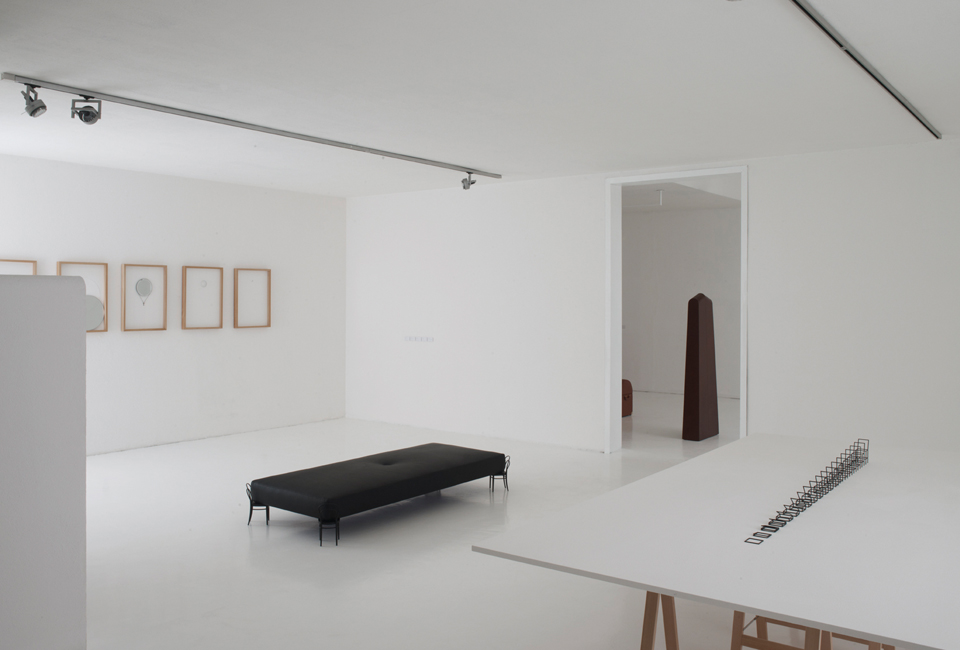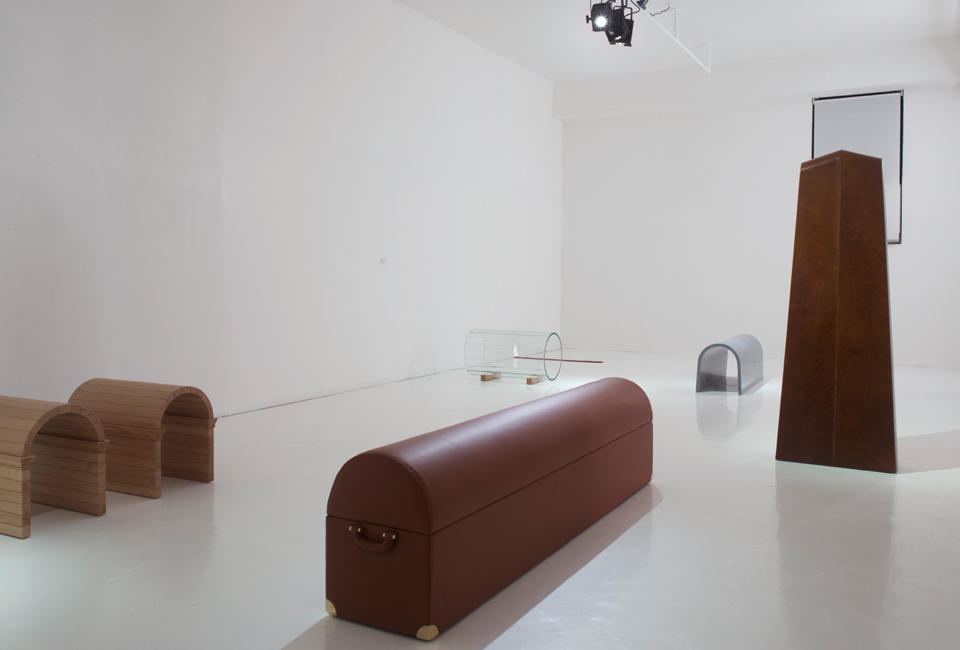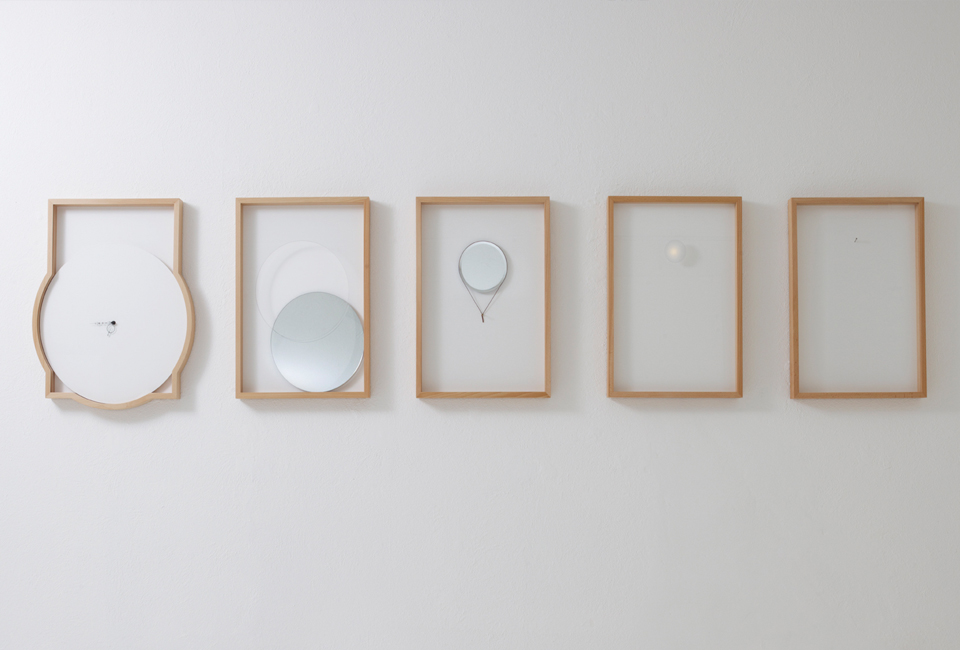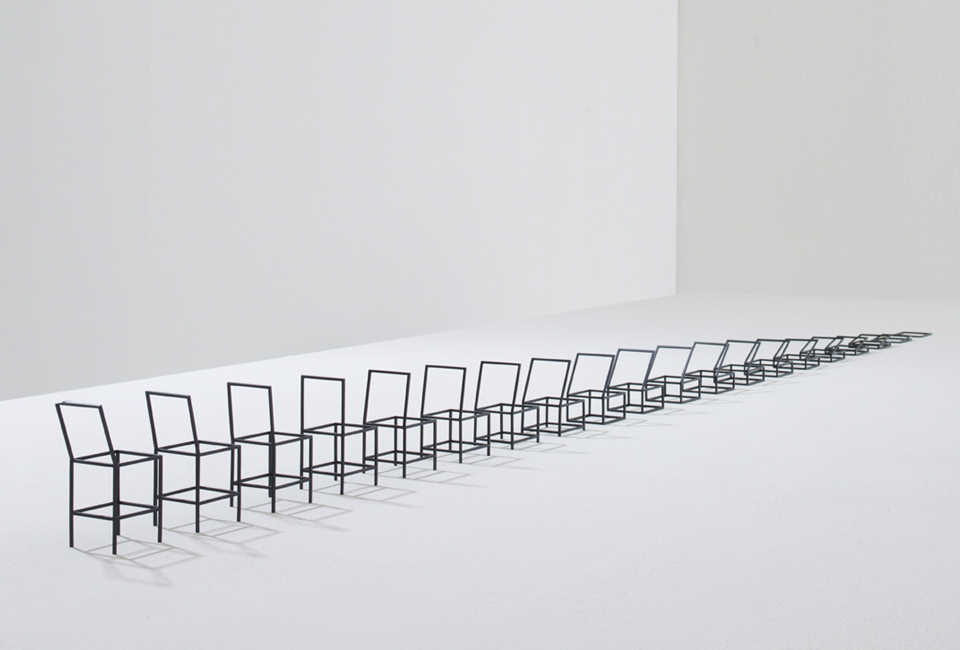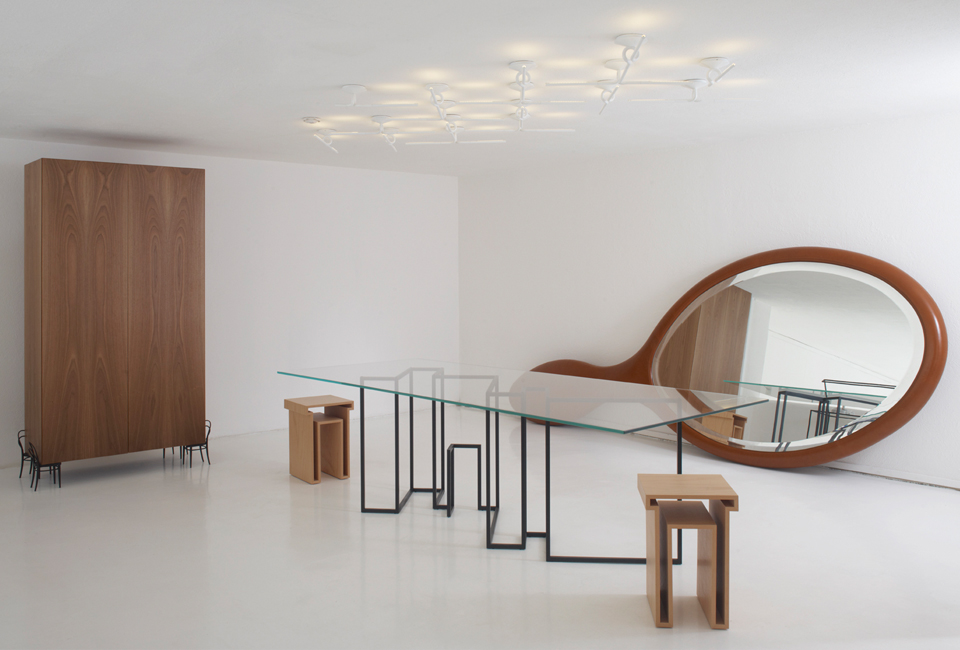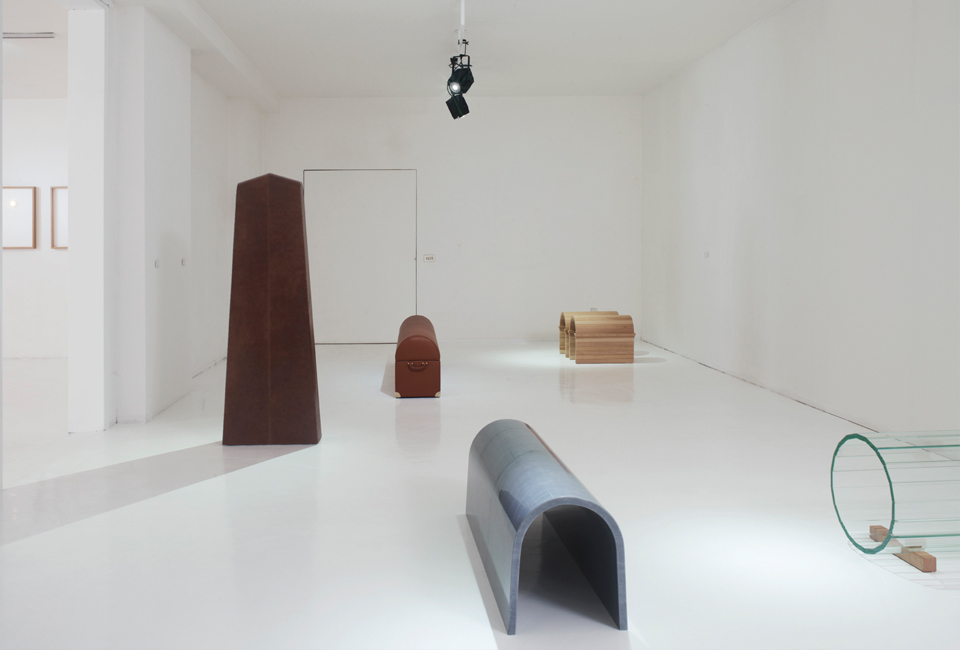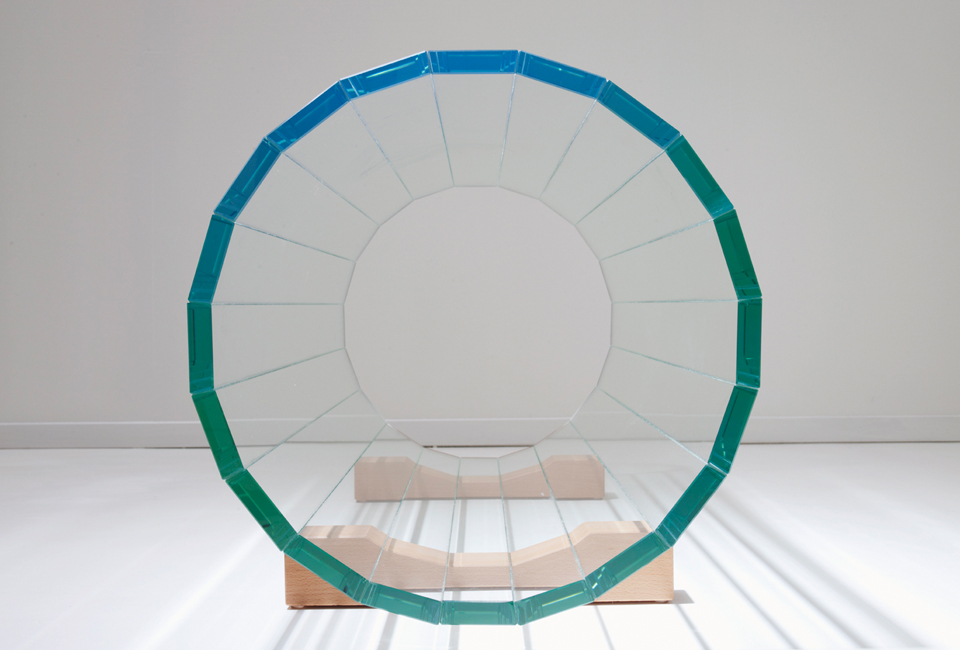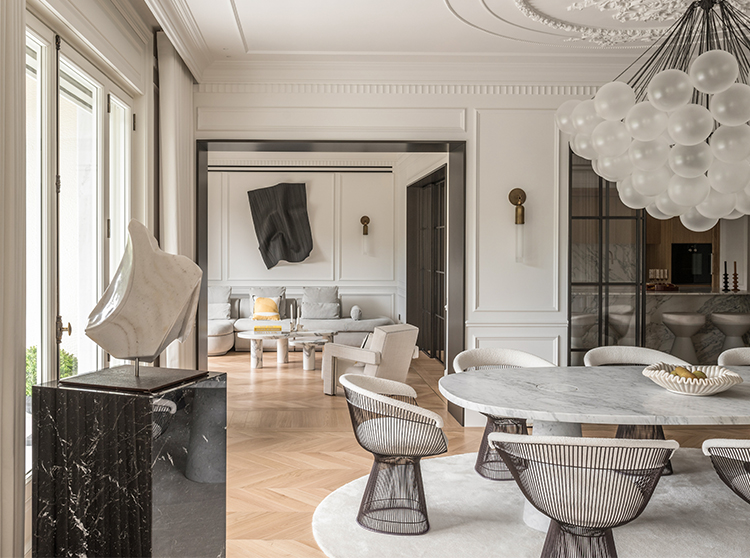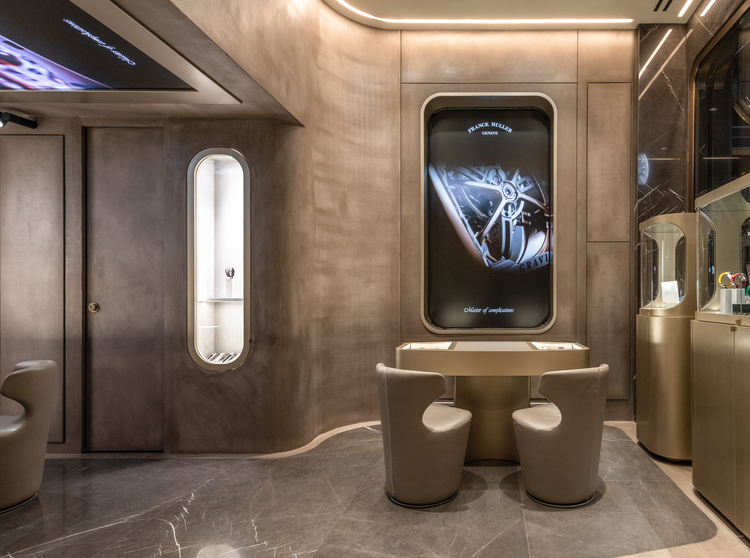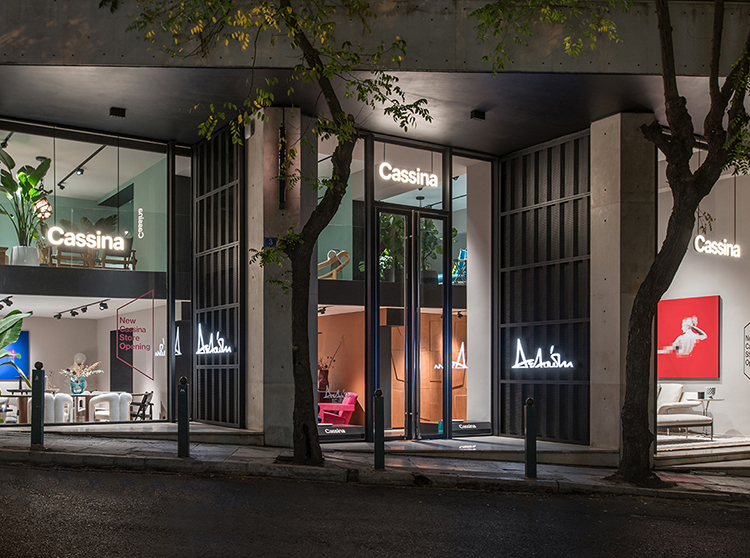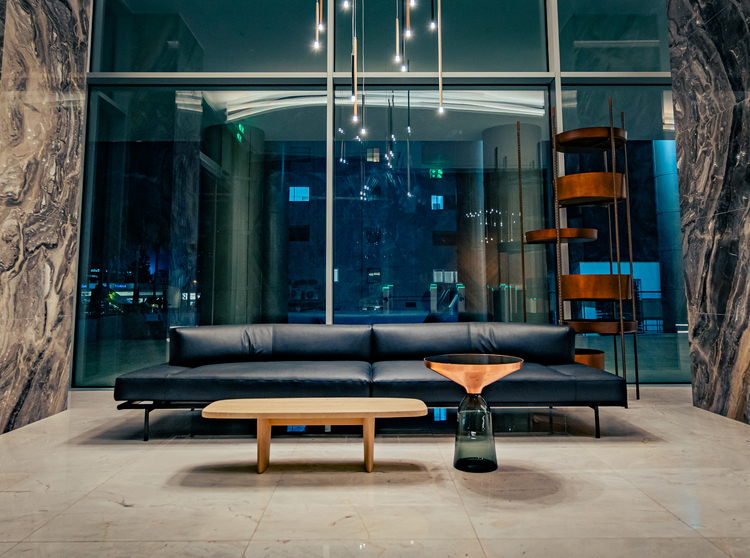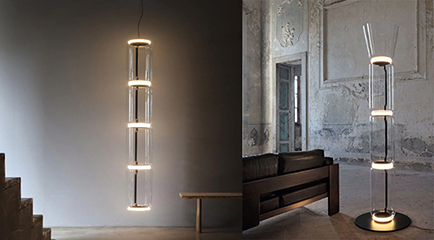Ron Gilad's objects are the end-result of what might be called "three-dimensional concepts". He uses simple geometries to describe the transformation of objects, in an imaginary dimension. Many of the ideas he has been developing for years relate to foundational concepts of the history of form, as well as to architecture, art, and design.
The very title of this one man exhibition for Dilmos - "The Line, The Arch, The Circle & The Square" - illustrates with utter simplicity the building blocks in his new series of creations.
Led both by instinct and reason, Gilad’s goal is to frame everyday objects within perfect geometry, altering their function and giving them new life.
The objects exhibited – seats, coat racks, mirrors, and light fixtures - confirm how successfully and freely Gilad moves among disparate crafts and a wide range of materials. One example is the bench series which picks up on the classic architectonic shape of the arch; using extremely refined techniques to work with marble, he handles this material as if it was as malleable and light as paper.
With a note of humor and irony, Gilad takes up the opportunity to invite us into a "theatre of the absurd". Here objects are not what they seem, or more accurately, shapes do not immediately suggest function, quite on the contrary. In this exhibition for Dilmos, each object is the translation of an argument and each idea synthesizes a thought.
THE LINE: emerges from a cut in the wall to form a thin iron line which - not without kindness - supports a candle.
THE ARCH: shows the capacity for simple solid geometry to become a seat.
THE CIRCLE: doesn't just hold a mirror, a clock, or an LED light fixture, it embodies the designer's arguments about concepts such as point / surface / container and, of course, circle.
THE SQUARE: through its slow evolution contains a fragment of the mystery of forms.
Oscillating between the logical and the absurd, randomness and causality, strictness and flexibility, Ron Gilad leads us - object by object, idea by idea - along his conceptual road map, to a place where everyone may interpret what they see, guided by their own imagination.
